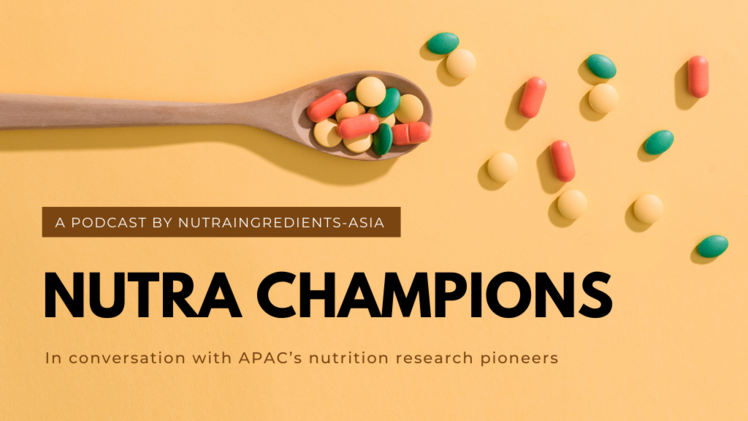NutraChampion podcast episode 34
Innovation opportunity: Newly crowned NutraChampion sees huge scope to cater to Thailand’s ageing population
This content item was originally published on www.nutraingredients-asia.com, a William Reed online publication.

As such, there are huge opportunities for more industry research and product innovation targeted at Thailand ageing population, says our newly crown NutraChampion, who was awarded the title in this year’s NutraIngredients-Asia Awards.
Dr Anadi Nitithamyong, assistant professor at Thailand’s Mahidol University, took home the Nutrachampion title on September 6, where we also announced the winners for the best functional ingredients and supplement products.
Also the president of Food Science and Technology Association of Thailand (FoSTAT), Dr Nitithamyong’s day-to-day responsibility is to oversee the operations and representing the non-profit organisation at various industry and government meetings.
FoSTAT is a network of experts specialising in food science and technology, with the aim of helping small medium food enterprises create nutritional products.
Some of the popular demands from these companies include fortifying their products with vitamins, minerals, and protein.
The organisation is also seeking to promote locally grown agricultural material by incorporating them into functional food products. So far, there has been research conducted on curcumin, different varieties of rice for their antioxidant properties, and vegetables such as the Thai kale.
At the same time, Dr Nitithamyong highlighted that more could be done for the ageing population in Thailand.
“I heard that there’s a lot of interest [in products for healthy ageing], but I have not seen many research or products catering to the ageing population yet, and I think this could be an opportunity for the industry to develop [new products],” Dr Nitithamyong said during the NutraChampion podcast interview conducted with us last month.
While the situation is not as dire as Japan, Thailand is also seeing a fast ageing society, with over a quarter of the population expected to be 65 years and above by 2040, according to data from the World Bank.
A possible reason for a lack of healthy ageing products could be because consumers simply do not see themselves as belonging to that category, said Dr Nitithamyong.
“Somehow, if you brand a product as food for the elderly, it will not sell well, because the consumers do not want to be seen as getting old.
“So, it is not only about the product development, but also the market innovation needs to go hand in hand in order to target this growing group of consumers,” she said.
Dr Nitithamyong also talked about plant-based product innovation opportunities in Thailand, the country’s upcoming regulatory revision on food and health claims.
Listen to the podcast to find out more.























